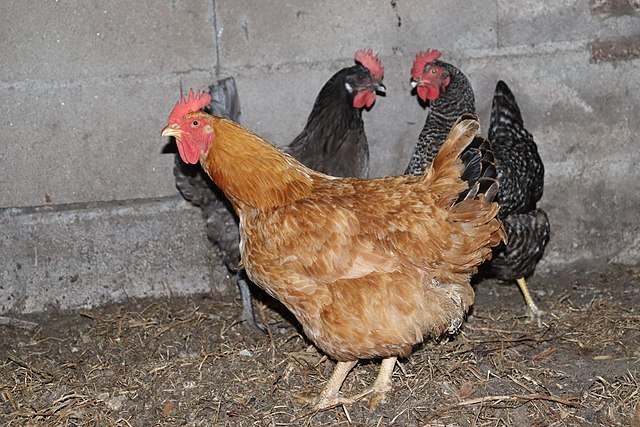
Concerns have been raised about 108 farm planning applications. Picture by Fernando Losada Rodríguez, Wikicommons
THE Northern Ireland Audit Office has written directly to nine councils affected by a planning scandal.
The move came after the Northern Ireland Environment Agency (NIEA) raised serious concerns about more than 100 planning applications for farm livestock sheds or biogas units, some of which have been approved, dating back to 2015.
An NIEA investigation found that 108 applications had submitted “misrepresented” soil sample results - a key part of the planning process.
Nine of Northern Ireland’s 11 council areas are affected.
Councils are responsible for approving most planning applications in their area. They are also responsible for investigating any potential planning breaches.
The NIEA probe was launched in October 2022.
However, of the nine councils affected, only three - Armagh City, Banbridge and Craigavon Borough Council, Fermanagh and Omagh District Council, and Causeway Coast and Glens Borough Council - have confirmed to The Detail that they are carrying out an investigation into the affected applications.

Audit Office directors Colette Kane and Seamus Wade. Photos courtesy of the Northern Ireland Audit Office
Audit Office director Colette Kane said the NIAO has asked councils what they are doing to investigate.
“We had a whistleblower come in and provide some more information to us, and we made some inquiries on the back of that as well,” she said.
Ms Kane said she will raise the issue with council chief executives during routine meetings over the summer.
Fellow Audit Office director Seamus Wade said it has asked councils “to advise us what is happening”.
“If issues are identified, we would be wanting to see two things: how are you pursuing those, and secondly, what steps have you put in place to make sure it doesn’t keep on happening,” he said.
Soil samples
Soil samples are a key part of the planning process for any new farm development.
They must show the applicant can deal with the extra manure generated without harming the environment.
Manure is high in ammonia, a nitrogen compound which can harm the environment and human health.
Ammonia emissions - 97% of which come from agriculture in Northern Ireland - are already at dangerous levels, including at many protected nature sites across the north.
The NIEA has written to the 108 applicants saying it had been “unable to verify” the results of key soil samples because “the purported analysing laboratory” listed on the documents had no record of either all, or a majority of, samples recorded in each of the applications.
The 108 applications include 101 for pig or poultry units and seven for biogas plants, which turn manure into fuel.
Both the Department for Infrastructure (DfI) and the Department of Agriculture, Environment and Rural Affairs (Daera) have said any investigation into the 108 applications is a matter for local councils.
“DfI has not conducted a review of the applications processed by local planning authorities and does not consider it appropriate to do so as the applications fall under the responsibility of individual councils who are autonomous organisations with their own governance and fraud procedures,” a spokeswoman said.
A Daera spokeswoman added that “any investigation into breaches of planning legislation, or potential planning fraud, is a matter primarily for the planning authorities”.
She said it is also up to the planning authorities to check if any of the 108 livestock sheds or biogas plants which have been granted planning approval are operational.
“Subsequent to this investigation, should the planning authorities require advice and guidance on potential environmental impacts from specific developments, NIEA will provide this in our role as a statutory consultee,” she said.
“No such requests, on specific granted applications, have been received to date.”
Last year, The Detail revealed that Teagasc, the Republic’s agri-food agency, had begun an internal investigation into planning applications submitted by dozens of Northern Ireland farmers.
Teagasc said 60% of the applications had used documents, purporting to be issued on its behalf around the export of animal manure across the border, that were either “falsified” or “altered” without its knowledge.
 By
By